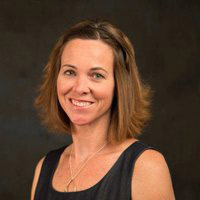Top Cardiovascular Technology Instructors
Search For Schools
When you click on a sponsoring school or program advertised on our site, or fill out a form to request information from a sponsoring school, we may earn a commission. View our advertising disclosure for more details.
Want to assist during open-heart surgery or be involved in the insertion of a pacemaker? Of course, these are sophisticated procedures typically carried out by a cardiologist or other physician, but cardiovascular technologists (CVTs) may be right there in the room with them, providing sterile tools or needed monitoring. According to the Bureau of Labor Statistics, CVTs can be involved with a variety of responsibilities that range from analyzing diagnostic information to monitoring the performance of the heart or even doing cardiac catheterization. The field is expected to grow much faster than average from 2018 to 2028, and the demand for trained and well-educated cardiovascular technologists is expected to be very strong. If you’re considering a career in cardiovascular technology, and wondering where and from whom you might learn to excel in the career, then look to these top cardiovascular technology instructors, providing exceptional instruction and guidance to students to prepare them to enter one of the fastest-growing fields in healthcare.

Jeff Davis
Florida SouthWestern State College - Fort Myers , Florida
At Florida SouthWestern State College, in Fort Myers, Fla., Jeff Davis leads the cardiovascular technology program. He has worked at the school since 1991, and received and attended its respiratory care program there in the mid-1980s when the school was still known as Edison College. He is a fellow with the Society of Invasive Cardiovascular Professionals (SICP) and a Registered Cardiac Invasive Specialist as well as a Registered Respiratory Therapist. He is also SICP’s representative to the Joint Review Committee on Education in Cardiovascular Technology (JRC-CVT).
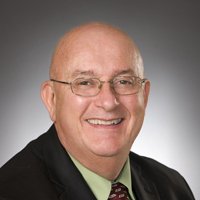
Paul Braum
NGHC School of Cardiovascular Technology - Gainesville , Georgia
Paul Braum leads the CVT program at NGHC School of Cardiovascular Technology, which is located at the Northeast Georgia Medical Center in Gainesville, Ga. He is Registered in Invasive Cardiology (RCVT), Registered in Adult Echocardiography (RDCS) and Registered in Peripheral Vascular Testing (RVT). He is also a Fellow in the American Society of Echocardiography (FASE). His work experience in cardiovascular non-invasive techniques spans more than 35 years. He has served as Chief of Pediatric Echocardiography at the Children’s Hospital of Pittsburgh in Pittsburgh, Penn., and was a senior technologist for Shands Teaching Hospital in Gainesville, Fla., in the cardiac catheterization laboratory. He has written several articles that have been published in scientific journals, according to the school website.
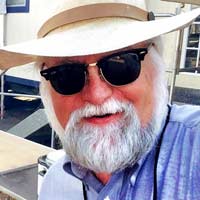
Ricky Stevens
Northwest Mississippi Community College - Senatobia , Mississippi
Ricky Stevens is the director of the cardiovascular tech program at Northwest Mississippi Community College, at which he has been employed since 2006. He teaches students in invasive cardiology tech, but has professional experience outside of the school that includes being a patient care coordinator and clinical nursing supervisor. He is a registered nurse (RN), and has a master’s degree in history.
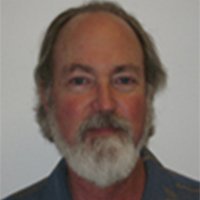
Barry Canaday
Oregon Tech - Klamath Falls , Oregon
At Oregon Tech, in Klamath Falls, students will find Barry Canaday, an assistant professor and program director of echocardiography. He has his RN license and also a Master of Science degree in biology, but graduated with an associate of applied science degree in 1992 in non-invasive cardiovascular technology. He joined the staff at Oregon Tech in 2009, but has also worked as a cardiac sonographer or lead cardiac sonographer in numerous working environments. His credentials include RDCS and RCS registry in Adult Echocardiography.
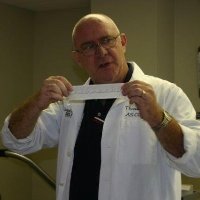
Thomas O’Brien
Remington College - Fort Worth , Texas
Thomas O’Brien is the chair of the Allied Health Department at Remington College in Fort Worth, Texas. He is a Certified Cardiographic Technician (CCT), a Certified Rhythm Analysis Technician (CRAT) and a Registered Medical Assistant, as well as co-author of the book “Electrocardiography for Healthcare Professionals.” He has extensive involvement with Cardiovascular Credentialing International (CCI), working to write questions for the exam, or more recently, serving as the exam chair. He received much of his healthcare training through the Air Force, and served as a medical technologist at Walter Reed Army Medical Center from 1980 to 1984.

Dr. Megan Hunsinger
Sentara College of Health Sciences - Chesapeake , Virginia
Dr. Megan Hunsinger is the program director of the cardiovascular tech program at Sentara College of Health Sciences in Chesapeake, Va. Although her doctoral degree is in educational leadership and management, she has both a bachelor’s and master’s degree focused on exercise science. A few years after obtaining these degrees, she then completed the program at Sentara College to become a cardiovascular technologist. She is now a Registered Cardiac Invasive Specialist (RCIS) and a Registered Cardiac Electrophysiologic specialist (RCES), as well as a member of the Society for Invasive Cardiovascular Professionals (SICP) and Heart Rhythm Society.
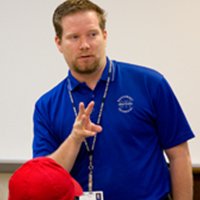
Patrick Hoier
Southeast Tech - Sioux Falls , South Dakota
Patrick, an instructor at Southeast Tech, in Sioux Falls, South Dakota, has credentials including Registered Cardiovascular Invasive Specialist (RCIS) and Registered Cardiovascular Specialist Assistant and is a fellow with the Society of Invasive Cardiovascular Professionals (SICP). A former student of the school, he returned to Southeast Tech in 2006 to become director of the program from which he graduated. He holds a bachelor’s of science degree in Allied Health and is also working toward completion of a master’s degree.

Polly Keller
Valencia Community College - Orlando , Florida
Polly Keller has worked at Valencia Community College, in Orlando, Florida, since 1995, giving her 20 years of experience in the school’s Cardiovascular Technology program. She has been featured in the school newspaper, through an article called “They’re All Heart,” that reports about the school’s CVT program and about how she pushes students to work hard and stay focused in the school’s cardiac catheterization classroom. She has her MBA and is a Registered Cardiovascular Invasive Specialist (RCIS) as well as a licensed Registered Respiratory Therapist.
Methodology
The college professors and directors on this list were selected for their professionalism, commitment to education and desire to help students succeed. There are certainly many additional professionals who work in college cardiovascular tech programs that could qualify for inclusion. That said, a few of the criteria used to guide selection include:
Time on the job: Barry Canady, as an example, has been working in the field since his graduation from an AAS program in 1992.
Certification:Many of the professionals on this list have received certification through an organization such as the American Registry for Diagnostic Medical Sonography, Cardiovascular Credentialing International, or other certifying organization, showing they have commitment to their profession and a form of evidence for their skills.
Professional experience: Knowledge about expectations on the job can certainly help instructors provide more targeted and specific instruction. That’s why many of the professors on this list have experience outside of their school, allowing them to bring an added level of insight to their students.

